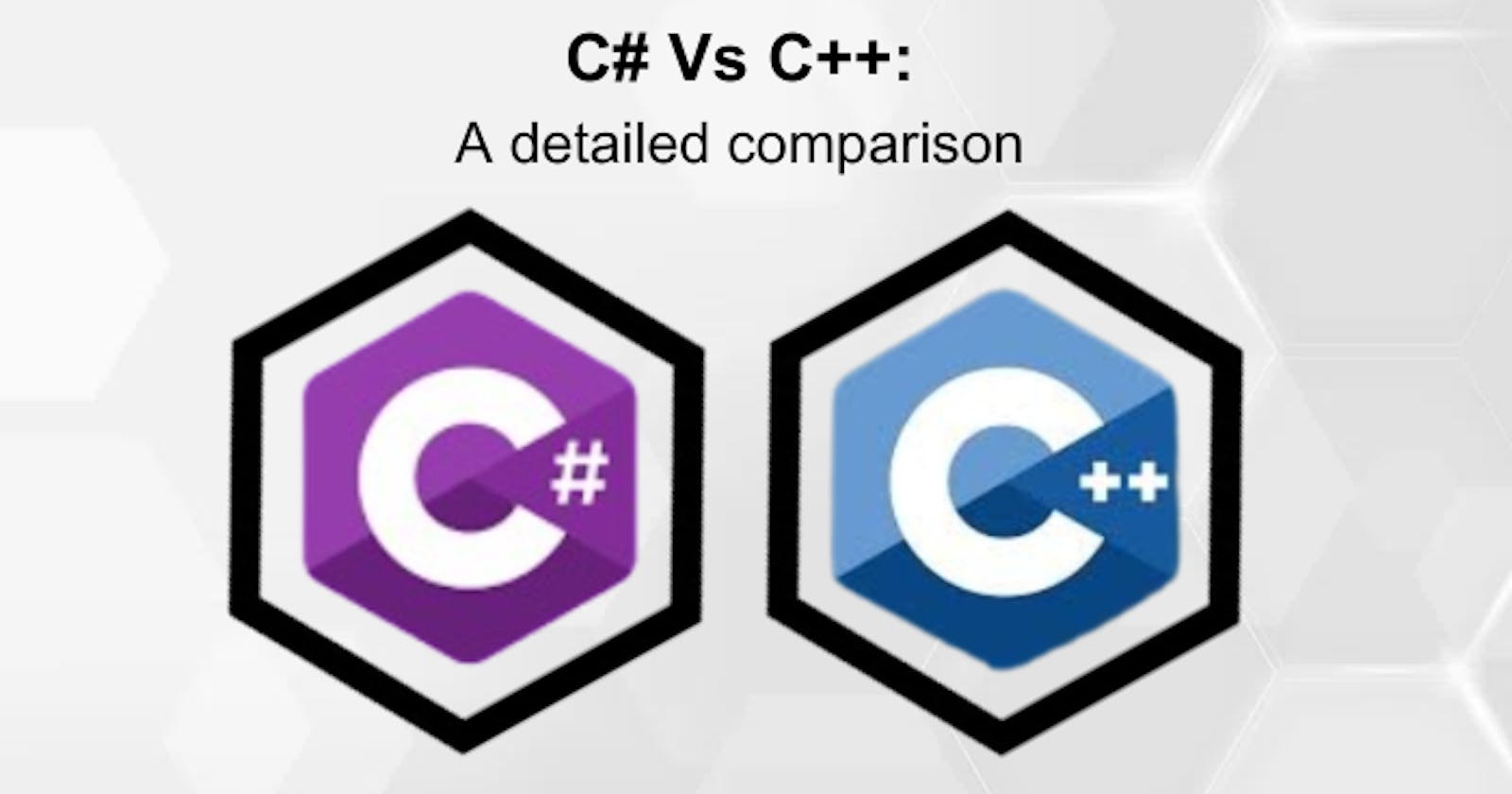Introduction
Various programming languages compete to establish their relevance in the industry as software engineering progresses. Although languages have different advantages (pros) and disadvantages (cons), direct comparisons between them are challenging due to their underlying approaches. However, exploring their differences can highlight the ideal use cases for each. C is a foundational language in this realm, paving the way for its powerful descendants, C++ and C#. Despite their shared lineage with the foundational C language, these powerhouses have carved distinct paths, each catering to specific development needs and developer preferences. Now, let's examine the concept of C# Vs C++, two of the most widely used programming languages.
Understanding C
C# is an object-oriented programming language created by Microsoft and designed to run on the .NET Framework. C# emerged as a cutting-edge, user-friendly language for creating software components with various platforms. This focus on portability made it ideal for distributed environments. With its rapid prominence, C# has emerged as the preferred language for Windows programming. The language can also be used to create apps for Linux, macOS, iOS, and Android platforms when combined with the .NET framework. C# empowers developers to build everything from cloud services to desktop and mobile applications, websites, and games.
Understanding C++
C++ is a versatile, general-purpose programming language encompassing multiple paradigms and serving as a C extension. It continues to be a popular language because of its great portability. This is a big benefit in today's diverse computing environment, enabling developers to build code that works flawlessly across multiple platforms and operating systems. The scalability and versatility of C++ are its main advantages. It is preferred for complicated applications, browsers, operating systems, games, and graphical user interfaces.
C# Vs C++: Key Differences
C# and C++ are powerful programming languages, each catering to different needs within the field of software development. Here is the comparison of C# Vs C++:
| Aspects | C# | C++ |
| Development speed | Faster because of in-built libraries | Slower due to manual memory control |
| Memory Management | Automatic | Manually |
| Platform | Mostly Windows-based | Cross-platform(Mac, Windows and Linux) |
| Type of language | High-Level | Mid-Level |
| Difficulty Level | Quite Easy | Very Complex |
| Size of binaries | Larger | Smaller |
Let's delve deeper into these key differences:
Development Speed
C#: Development with C# is typically faster because of its many built-in libraries and tools that increase efficiency. With the help of these using the right tools, developers can create apps more rapidly and effectively.
C++: Development times for C++ can be longer because of the language's intricate syntax and requirement for manual memory management. It can be time-consuming and error-prone for developers to manage memory allocation and deallocation appropriately. Additionally, the language's more intricate syntax may require extra time for coding and debugging.Memory Management
C#: Memory management is automated by garbage collection in C#. By identifying and deallocating unused memory, the runtime environment simplifies development and enhances program stability by lowering the C# developer workload and minimizing memory-related issues.
C++: In C++, dynamic object allocation requires manual memory management. Developers must properly allocate and deallocate memory for objects to ensure appropriate resource usage and prevent memory leaks.Platform
C#: C# programs are typically created for the Windows operating system. However, Microsoft's .NET Core tool enables the development of cross-platform programs.
C++: C++ offers direct compatibility with multiple platforms, including Mac, Windows, and Linux, allowing developers to write code that can run seamlessly across various operating systems.Type of language
C#: C# is classified as a high-level programming language. Low-level details are abstracted away, giving programmers a more user-friendly and intuitive vocabulary for software development.
C++: C++ encompasses elements of both high-level and low-level languages since it is built directly upon C. C++ developers can choose between direct control over system resources and abstraction with this language that acts as an intermediary.Difficulty Level
C#: In C#, the hierarchy is simple and clear to understand. The language provides simple and understandable syntax for defining classes, inheritance, and object-oriented programming ideas.
C++: C++ has many intricate features that are difficult to understand, particularly for novice programmers. A deeper grasp is necessary for its syntax and principles, which include pointer arithmetic and manual memory management.Size of binaries
C#: C# programming language involves overhead libraries and dependencies like the .NET Framework and .NET Core runtime; binaries in this language are known to be larger. Though they contribute to bigger binary files, these libraries offer more functionality.
C++: Due to C++'s quick compilation process and minimalistic design, binaries tend to be small and light.
Conclusion
Yet confused about C# vs C++? Project needs are what matter in the end. While C++ provides fine-grained control and performance for system-level programming across platforms, C# is user-friendly and excels at Windows development. Hire C++ developer if your projects are focused on hardware-centric tasks, offering enhanced performance capabilities. However, C# performs exceptionally well when used to create desktop and web apps. In general, both languages boast considerable power in the realm of development and are favored by a majority of programmers.
Competent developers are essential to the project's accomplishment regardless of your choice. If you opt for C#, For C# projects, you can hire C# developer who can harness the language's power to craft robust and efficient applications that meet your specific requirements.
For a more detailed explanation, you may read C# vs C++.
